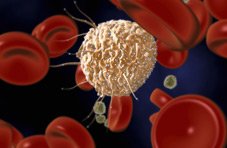History of stem cells.

ALTHOUGH QUITE A NEW SUBJECT, HISTORY OF STEM CELLS IS DEVELOPING A LOT OF INCREASING INTEREST
There are reports going back for about 100 years. As early as the 1900s it was discovered that some type of cells had the ability to create blood cells.
However no real progress was made until about 10 years ago. More recently with the advantage of modern research technology and the huge amounts of money which is now being spent on these investigation procedures great progress is now being made.
Today stem cell research is now progressing at a rapid rate and there are many research studies released each year in scientific reports and journals. We are now rapidly developing an important history of stem cells research.
Adult stem cells are now being used in an attempt to treat various conditions such as heart disease and leukemia and some success is now being achieved in both of these areas.
More recently, debate amongst the public and particularly religious groups have led to a lot of controversy mainly directed to embryonic stem cell research.
The purpose appears be to safeguard the public from unethical stem cell research and we hope they will however still support advancements in this important field.
Government officials and scientists are now creating various laws and procedures regarding stem cell harvesting. Luckily however, the use of adult stem cells does not appear to be implicated and this is where great progress is now occurring.
Recently the Catholic church supported by the Pope, are now supporting research into adult stem cells as it is now realised this is where the greatest hope for dealing with diseases and human suffering now lies.
In the past great hopes were held for the use of drugs to alleviate health care problems, however it is now being more broadly recognised that drugs do not cure anything. The best they can do is provide a form of relief, however this is often with serious side effects.
For more information on this important subject on stem cells Leave history of stem cells go to Antiaging health.